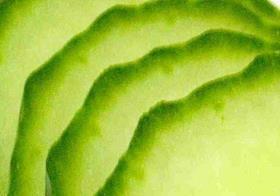
Producer groups in Germany and the Netherlands say they have so far found no trace in their own operations of the E.coli bacteria thought to be responsible for the recent outbreak of a deadly infection in Germany over the past couple of weeks.
The outbreak, which has reportedly contributed to at least 14 deaths and led to more than 300 people becoming ill in Germany, was traced by the German and Dutch authorities late last week to Spanish cucumbers supplied by two companies – Malaga-based organic exporter Frunet Bio and Hortofruticola Costa de Almería.
Since then, many major retailers across Europe have suspended sales of Spanish cucumbers, with some including Aldi and Lidl withdrawing all vegetables from Spain.
Germany's union of producer organisations BVEO, which is due to hold a crisis meeting in Bonn on Tuesday 31 May to address the situation and discuss the next course of possible action, says several of its members – including major suppliers Landgard, Papenburg and ELO Langförden – have given their products the all-clear.
Meanwhile, Dutch horticultural association Productschap Tuinbouw said food safety inspectors had found no trace of the E.coli bacterium in the Netherlands.
The country's food safety authority, nWVA, has spent the past few days conducting checks and inspections at a number of Dutch vegetable traders and suppliers, including one Dutch company earlier thought to have supplied Spanish cucumbers carrying E.coli.
However, the agency said it had not found any trace of the bacteria: 'Preventive examinations were carried out at a Dutch company suspected of supplying Spanish cucumbers. The results show that the company did not deal with any of the affected Spanish companies.'
Some reports in Germany have suggested that affected cucumbers from Spain have been 'on sale for weeks', but Spanish authorities continue to question whether the outbreak can really be linked back to Spain itself.
In Spain, growers are losing around €7m-€8m per day as a result of the crisis, one report suggested, while in Germany cucumber prices in a number of cities are understood to be down significantly.
European Commission spokesman Frederic Vincent said on Saturday: 'We don't know where the contamination occurred, whether on the (Spanish) sites or along the distribution chain.'
According to the European Commission, Spanish officials have suspended the cucumber-producing activities of Frunet Bio and Hortofruticola Costa.
A suspect consignment of Spanish cucumbers was apparently distributed to Denmark, but authorities there traced the vegetables and withdrew them from the market, the EC said in a statement.
The Andalusian authorities, meanwhile, have said that 'exhaustive checks' by Malaga-based organic vegetable supplier Frunet Bio on its cucumbers showed them to be 'completely free of contamination'.
'However, we decided to suspend the product as a preventive measure,' officials said in a statement.
Spanish newspaper El Pais reports that the company received notice from Germany four days after shipping a batch of cucumbers on May 12 that the vegetables had been 'dropped on the ground in a Hamburg market'.
'We have that in writing,' the newspaper quoted a Frunet Bio spokesperson as saying. 'When that happens we can no longer guarantee the product.'
At Hortofruticola Costa, based in Roquetas del Mar, samples from suspect consignments were reportedly sent to a laboratory in the Spanish province of Galicia.






No comments yet